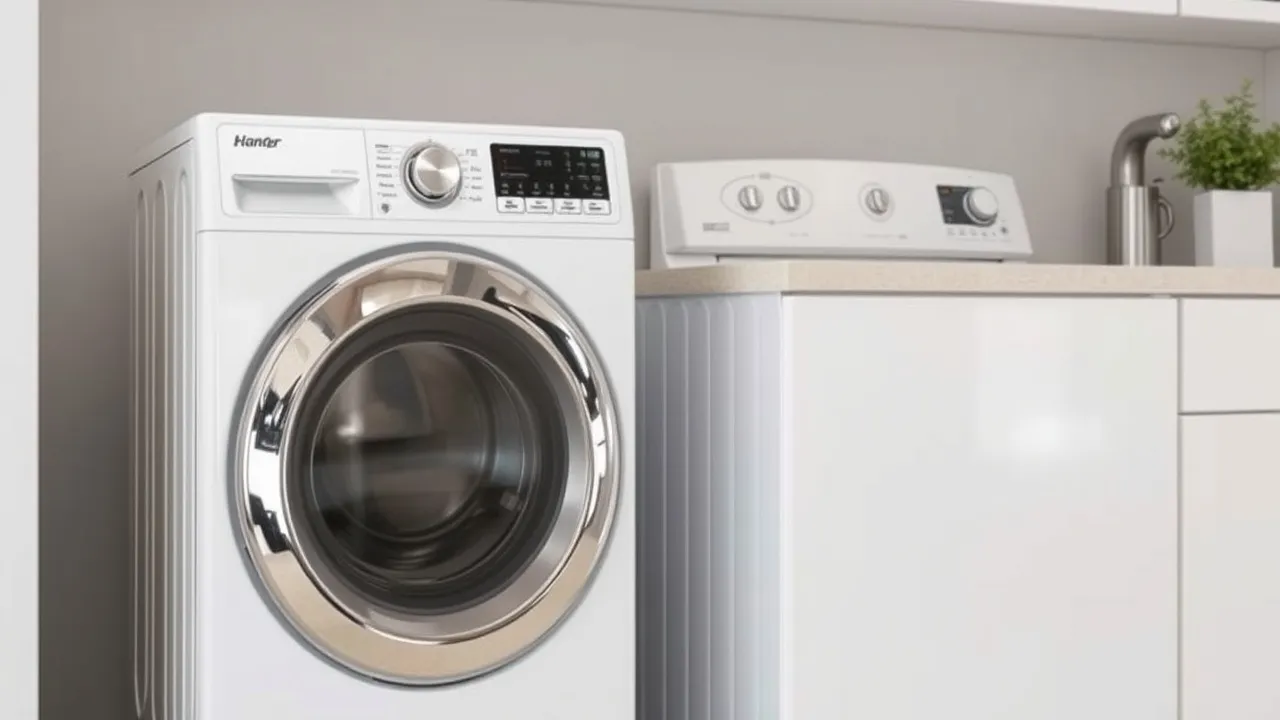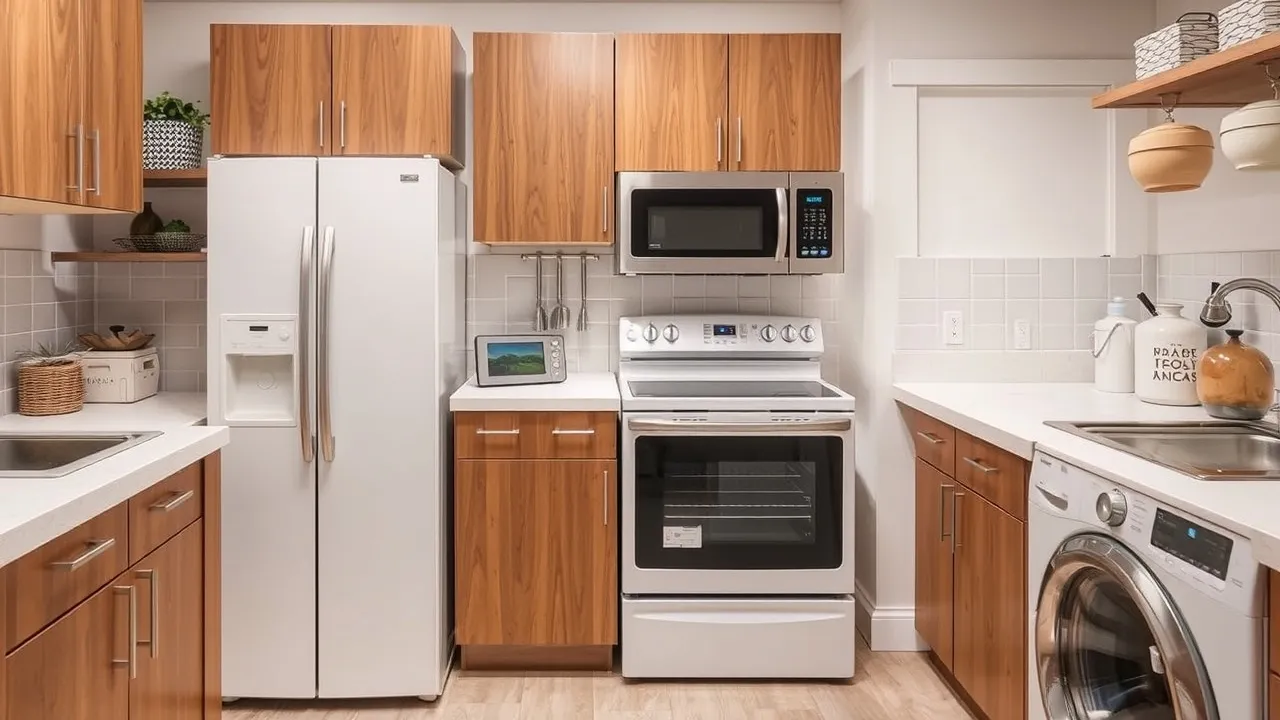Appliance repair can be challenging, depending on the complexity of the issue. Basic repairs are manageable with proper knowledge and tools.
Table of Contents
- Myth Vs. Reality: The Appliance Repair Conundrum
- The Perceived Complexity Of Appliance Repair
- Common Misconceptions About The Trade
- Table: Tools Commonly Used In Appliance Repair
- Essential Skills For Appliance Repair
- Technical Know-how And Problem-solving
- The Role Of Experience And Training
- Tools Of The Trade
- Must-have Tools For Every Repair Job
- Specialized Equipment For Complex Fixes
- The Learning Curve In Appliance Repair
- Resources For Beginners
- From Novice To Expert: A Journey
- Challenges In The Field
- Dealing With Different Models And Makes
- Navigating Difficult Repair Scenarios
- The Business Side Of Appliance Repair
- Is Running A Repair Business Profitable?
- Marketing And Customer Acquisition Strategies
- Career Prospects In Appliance Repair
- Job Opportunities And Growth
- Income Potential For Repair Technicians
- The Future Of Appliance Repair
- Technological Advancements And Their Impact
- The Evolving Landscape Of Home Appliances
- Training And Certification
- Paths To Becoming A Certified Technician
- Continued Education and Skills Advancement
- Day-to-day Experiences And Customer Interactions
Appliance repair involves diagnosing and fixing a variety of household appliances, from refrigerators to washing machines. While some repairs are straightforward, others can be complex and require specialized knowledge. Understanding the basics of appliance operation, having the right tools, and being willing to learn are crucial for success.

Many resources are available, including online tutorials and courses, to help individuals develop their skills. Professional technicians often undergo training and certification to handle more complicated repairs. Whether you are a DIY enthusiast or considering a career in appliance repair, starting with the fundamentals can make the process less daunting and more manageable.
Myth Vs. Reality: The Appliance Repair Conundrum
Many people think that appliance repair is too hard. This belief stems from various myths and misconceptions. Let’s explore the truth about the appliance repair conundrum. In reality, many repairs can be straightforward with the right guidance and tools. Additionally, understanding the appliance repair cost benefits can help individuals save money in the long run, as professional repairs are often more affordable than replacements. By dispelling these myths, more people can confidently tackle their appliance issues and extend the lifespan of their devices. In reality, with the right resources and guidance, many appliance issues can be resolved by anyone willing to learn. For those looking to enhance their skills, yes i can appliance repair tips can provide invaluable insights and techniques. By debunking these myths, more individuals may feel empowered to tackle appliance repairs confidently.
The Perceived Complexity Of Appliance Repair
People often see appliance repair as overly complex. They imagine intricate circuits and mysterious components. This perception can be intimidating.
Yet, most household appliances have straightforward designs. They consist of basic parts such as motors, belts, and switches. Understanding these can make repair tasks simpler.
Consider a washing machine. It has a drum, motor, and control panel. Knowing how these parts work together helps in diagnosing issues.
Common Misconceptions About The Trade
Several misconceptions surround the appliance repair trade. These myths make the job seem harder than it is.
Misconception 1: You need to be an engineer to fix appliances. In reality, many repairs require basic mechanical skills.
Misconception 2: Repairs always require special tools. Most common repairs need basic tools like screwdrivers and pliers.
Misconception 3: It’s always cheaper to replace than repair. Often, a simple fix can extend an appliance’s life, saving money.
Table: Tools Commonly Used In Appliance Repair
| Tool | Purpose |
|---|---|
| Putty Knife | Opening panels |
| Combination Wrench Set | Tightening and loosening bolts |
| Work Gloves | Protecting hands |
| Multimeter | Testing electrical components |
| Needle-nose Pliers | Gripping and bending wires |
| Wire Cutters | Cutting wires |
| Sturdy Towels | Cleaning and holding parts |
Understanding these tools can simplify many repairs. They are easy to use and widely available. Knowing their functions can demystify the repair process.
Essential Skills For Appliance Repair
Appliance repair can seem daunting at first glance. To excel, one needs a mix of technical knowledge, problem-solving skills, and hands-on experience. Mastering these skills can make the process smoother and more manageable.
Technical Know-how And Problem-solving
Technical knowledge is crucial in appliance repair. Understanding how appliances work is the first step. This includes knowing the mechanical components and electrical systems involved. Familiarity with different appliance brands and models helps too.
Problem-solving skills are equally important. Diagnosing issues accurately saves time and effort. It involves logical thinking and sometimes a bit of detective work. For instance:
- Identifying symptoms of the problem
- Checking common failure points
- Using diagnostic tools to test components
The Role Of Experience And Training
Experience plays a vital role in appliance repair. The more you practice, the better you become. Seasoned technicians can often diagnose issues by sound or smell. They also develop a knack for quick fixes.
Training provides a solid foundation. Many technicians start with vocational courses or certifications. These programs teach the basics of appliance repair and safety protocols. On-the-job training further honed these skills.
| Skill | Description |
|---|---|
| Technical Knowledge | Understanding appliance mechanics and electronics |
| Problem-Solving | Diagnosing and fixing issues efficiently |
| Experience | Hands-on practice and familiarity with different models |
| Training | Formal education and certifications in appliance repair |
Building these skills takes time and dedication. But with patience and practice, anyone can maintain appliance repair.
Tools Of The Trade
Appliance repair requires the right set of tools. Knowing which tools to have can make repair jobs easier. Here, we explore the essential tools for every repair job and the specialized equipment needed for more complex fixes.
Must-have Tools For Every Repair Job
Every appliance repair technician needs certain tools. These tools help with basic repairs and maintenance tasks.
- Screwdrivers: Both flathead and Phillips screwdrivers are essential.
- Multimeter: This tool measures electrical values like voltage and current.
- Pliers: Needle-nose pliers are great for gripping and bending wires.
- Wrench Set: A combination wrench set is useful for tightening and loosening bolts.
- Putty Knife: This tool helps to scrape off old sealant and other residues.
- Wire Cutters: Essential for cutting and stripping wires.
- Work Gloves: Protect your hands while handling sharp or hot objects.
Specialized Equipment For Complex Fixes
For more complex appliance repairs, technicians often require specialized equipment. These tools help diagnose and fix intricate issues.
| Tool | Purpose |
|---|---|
| Oscilloscope | Analyzes electrical signals in appliances. |
| Thermal Imaging Camera | Detects heat loss and overheating components. |
| Capacitor Tester | Tests the health of capacitors in circuits. |
| Leak Detector | Finds leaks in refrigeration systems. |
| Manifold Gauge Set | Measures pressure in refrigeration systems. |
The Learning Curve In Appliance Repair
The journey of mastering appliance repair can be challenging but rewarding. Beginners often face a steep learning curve, but with dedication, one can become proficient. Understanding the complexities and acquiring the right skills takes time. Let’s delve into the learning curve in appliance repair.
Resources For Beginners
Starting in appliance repair requires the right resources. Here are some essential tools and learning materials for beginners:
| Resource Type | Description |
|---|---|
| Books | Comprehensive guides on appliance repair techniques. |
| Online Courses | Interactive lessons with expert instructions. |
| Videos | Step-by-step visual tutorials on common repairs. |
| Forums | Community discussions and troubleshooting tips. |
From Novice To Expert: A Journey
The path from a novice to an expert in appliance repair involves continuous learning and practice. Here’s a simple roadmap to guide your journey:
- Learn the Basics: Understand the fundamental principles of how appliances work.
- Hands-On Practice: Start with simple repairs and gradually tackle more complex issues.
- Advanced Training: Enroll in advanced courses or certification programs.
- Gain Experience: Work on a variety of appliances to build your expertise.
- Stay Updated: Keep up with the latest technologies and repair techniques.
Becoming an expert in appliance repair is a journey that requires patience and persistence. Each repair job adds to your experience, making you more skilled and confident.
Challenges In The Field
Appliance repair is not always a straightforward task. Technicians face a range of challenges that make the job complex. These challenges demand a mix of technical skills, patience, and problem-solving abilities. Below, we delve into some of the most common obstacles in this field.
Dealing With Different Models And Makes
One of the biggest challenges is handling different models and makes of appliances. Each brand has its design and technology. This means that a technician must understand an array of systems.
For example:
- Samsung refrigerators
- LG washing machines
- Whirlpool dishwashers
Each of these brands uses unique components and layouts. Technicians must be familiar with these differences to diagnose and fix issues effectively.
Navigating Difficult Repair Scenarios
Repair scenarios can vary in difficulty. Some repairs are simple, like replacing a fuse. Others are more complex, involving multiple parts and deep knowledge of the appliance’s system.
Common difficult scenarios include:
- Fixing an electrical short in a washing machine
- Repairing a refrigerator’s cooling system
- Resolving sensor issues in modern ovens
These scenarios require patience and advanced troubleshooting skills. Technicians often need to consult manuals and use specialized tools to complete these repairs.

The Business Side Of Appliance Repair
Starting and running an appliance repair business involves more than just technical skills. It requires understanding the financial landscape, effective marketing strategies, and customer acquisition techniques. This section will delve into the profitability of running a repair business and explore key marketing tactics to attract and retain customers.
Is Running A Repair Business Profitable?
Running an appliance repair business can be highly profitable. The demand for repair services remains constant, as people prefer fixing appliances over replacing them. Here are a few key points to consider:
- Low initial investment: Starting costs are relatively low compared to other businesses.
- High demand: Appliances break down frequently, ensuring a steady stream of customers.
- Repeat business: Satisfied customers often return for future repairs.
- Diverse revenue streams: Offer maintenance services, sell parts, and provide consultations.
Marketing And Customer Acquisition Strategies
Effective marketing and customer acquisition are crucial for the success of an appliance repair business. Here are some strategies to consider:
Online Presence
- Website: Create a professional website showcasing your services.
- SEO: Optimize your website for search engines to attract organic traffic.
- Social Media: Use platforms like Facebook and Instagram to engage with potential customers.
Local Advertising
- Flyers and Brochures: Distribute in local neighborhoods and businesses.
- Local Listings: Register on Google My Business and local directories.
- Community Events: Sponsor or take part in local events to increase visibility.
Customer Retention
- Loyalty Programs: Offer discounts or rewards for repeat customers.
- Referral Incentives: Encourage satisfied customers to refer friends and family.
- Follow-ups: Send follow-up emails or calls to ensure customer satisfaction.
Career Prospects In Appliance Repair
The field of appliance repair offers strong career prospects. With more households relying on appliances, skilled technicians are in demand. This section delves into job opportunities growth, and income potential for repair technicians.
Job Opportunities And Growth
Appliance repair technicians have various job opportunities. They can work for repair companies or start their businesses. Technicians are necessary for both residential and commercial repairs. The demand for skilled repair technicians is rising.
According to the U.S. Bureau of Labor Statistics (BLS), the employment of home appliance repairers is projected to grow. This growth is driven by the need for maintenance of existing appliances. New technologies in appliances also require skilled technicians. This creates continuous demand in the job market.
Here are some common job roles in the appliance repair field:
- Home Appliance Repair Technician
- Commercial Appliance Repair Technician
- Service Manager
- Field Service Technician
Income Potential For Repair Technicians
The income potential in appliance repair is promising. Technicians can earn a steady income. Here’s a table summarizing average annual salaries:
| Job Role | Average Annual Salary |
|---|---|
| Entry-Level Technician | $30,000 – $40,000 |
| Experienced Technician | $40,000 – $60,000 |
| Service Manager | $60,000 – $80,000 |
Freelance technicians can set their rates. They often earn more than salaried employees. With experience, technicians can specialize in high-end appliances. This can further increase income potential.
Technicians can also earn through additional services, such as
- Maintenance contracts
- Emergency repair services
- Installation services
Overall, a career in appliance repair is both rewarding and lucrative. Skilled technicians will continue to be in high demand.
The Future Of Appliance Repair
The future of appliance repair is rapidly evolving. Technological advancements are transforming the landscape of home appliances. Understanding these changes is crucial for technicians and homeowners alike. As smart home integration becomes more prevalent, technicians must stay updated on the latest system diagnostics and software troubleshooting. An lg appliance repair services overview can provide valuable insights into how these innovations affect repair strategies and customer interactions. By adapting to these trends, both homeowners and repair professionals can ensure appliances operate efficiently and effectively.
Technological Advancements And Their Impact
Technological advancements are reshaping appliance repair. Smart appliances are becoming more common. They have features like remote diagnostics and self-repair capabilities.
Remote diagnostics allow technicians to troubleshoot issues without a physical visit. This saves time and reduces costs. It also means faster fixes for homeowners.
Self-repair capabilities are another breakthrough. Some appliances can fix minor issues on their own. This reduces the need for professional intervention.
These advancements make appliance repair less challenging. Technicians need to stay updated with the latest technologies. Continuous learning is key.
The Evolving Landscape Of Home Appliances
The landscape of home appliances is constantly changing. Energy-efficient models are becoming more popular. They use less power and are eco-friendly.
Smart home integration is also on the rise. Appliances can now communicate with each other. It is also possible to control them via smartphones or voice commands.
This interconnectedness adds convenience for homeowners. It also means more complex systems. Technicians must understand these integrations to provide effective repairs.
| Feature | Impact |
|---|---|
| Smart Appliances | Remote diagnostics and self-repair capabilities |
| Energy-Efficient Models | Lower energy usage and eco-friendly |
| Smart Home Integration | Convenience and complex systems |
Understanding the evolving landscape is crucial. It helps technicians provide better service. It also ensures homeowners get the most out of their appliances.
Training And Certification
Appliance repair may seem daunting, but with proper training and certification, it becomes manageable. Certified technicians know how to handle various appliance issues. Proper training ensures safety and efficiency, making the job smoother.
Paths To Becoming A Certified Technician
Various paths exist to become a certified appliance repair technician. Each path offers unique benefits. Here are some common routes:
- Vocational Schools: Offer specialized courses in appliance repair.
- Community College: Provide comprehensive programs with hands-on training.
- Apprenticeships: Combine on-the-job training with classroom instruction.
- Online Courses: Flexible options for learning at your own pace.
| Path | Duration | Cost |
|---|---|---|
| Vocational Schools | 6-12 months | $2,000 – $5,000 |
| Community College | 1-2 years | $3,000 – $8,000 |
| Apprenticeships | 2-4 years | Varies (often paid) |
| Online Courses | Self-paced | $500 – $2,000 |
Continued Education and Skills Advancement
Continued education is crucial in the appliance repair industry. Technology develops, and new appliances emerge. Technicians must stay updated to remain effective.
Here are ways to advance skills:
- Workshops and Seminars: Regularly attend industry events.
- Manufacturer Training: take part in sessions offered by appliance manufacturers.
- Certification Renewal: Maintain certification by completing required courses.
- Online Resources: use online tutorials and forums.
Investing in skill advancement ensures long-term success. Knowledgeable technicians provide better service and stay ahead in a competitive field.



